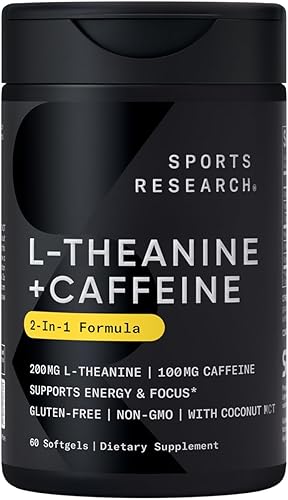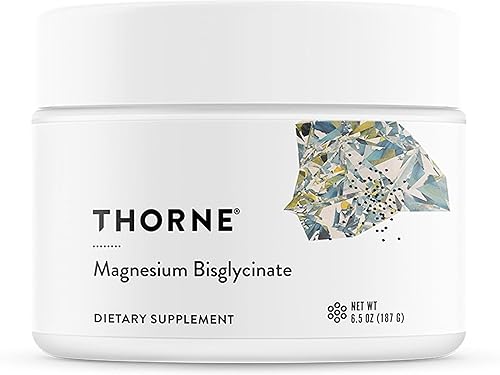Morning Brain Reset: Natural Rituals to Boost Focus Before 9 AM
Quick preview: science-backed morning steps (light, movement, breathwork, protein + smart caffeine, and a couple of targeted nutrients) to sharpen attention, stabilize energy, and prepare your brain for a productive day.
Why the first hour matters for focus (and how small rituals create outsized effects)
There’s a reason the most productive people talk about “winning the morning.” Your brain’s neurochemistry—circadian hormones, neurotransmitters, blood glucose handling—are primed right after waking. Do nothing and you drift into autopilot. Do a handful of intentional steps and you can reliably raise alertness, reduce mid-morning crashes, and stack wins that snowball all day.
Peer-reviewed work shows that targeted morning bright-light exposure improves sleep quality and reduces morning sleepiness, which directly translates to clearer thinking during the day. A 2023 trial found that morning bright light improved sleep efficiency and reduced fragmentation compared to normal office light. (PubMed 2023).
Five high-impact morning rituals (what to do & why it works)
Below are five rituals that are fast, practical, and backed by human or translational studies. Combine 2–3 of them and you’ll notice an immediate difference; combine all five and you’ll build durable upward momentum.
1) Early bright light (10–30 minutes)
What: Get natural sunlight or a 10–30 minute session in front of a 10,000-lux light box within the first hour of waking. If outside, 10–20 minutes of direct sun (without sunglasses) is ideal when safe and feasible.
Why: Morning sunlight resets your circadian clock via retinal light input to the suprachiasmatic nucleus. This regulates cortisol and melatonin timing, improving daytime alertness and night sleep. Clinical trials show morning bright light reduces sleep fragmentation and lowers morning sleepiness — both critical for daytime cognition. (PubMed 2023).
2) Movement that raises heart rate (~10–20 minutes)
What: A brisk 10–20 minute routine (walk, bike, bodyweight circuit, or brief HIIT) performed soon after waking.
Why: Acute aerobic activity raises BDNF (a key growth factor for learning), increases cerebral blood flow, and sharpens reaction time. Recent studies show morning exercise can improve reaction time and short-term cognitive performance more than identical exercise later in the day. (review 2022; study 2024).
3) Breathwork & cold exposure (2–6 minutes)
What: Five minutes of focused breathwork (box breathing, Wim Hof-style rounds, or simple paced breathing), followed by a short cold shower or quick cold plunge if available.
Why: Breathwork quickly shifts autonomic balance—reducing perceived stress and improving focus. Short cold exposure increases norepinephrine, which is directly linked to alertness and mood. Controlled cold immersion research suggests benefits for positive affect and reduced negative affect; practitioners like Wim Hof, Tim Ferriss and many athletes incorporate breathing plus cold exposure into morning routines because it reliably “turns on” the nervous system. (cold immersion review 2023).
Practical note: start gently. If you’re new to cold showers or plunges — try 30–60 seconds of cooler water after your warm shower and work up from there.
4) Protein + fiber breakfast within 60 minutes
What: Eat a breakfast that contains ~20–30 g of protein and a source of fiber ( Greek yogurt + berries + nuts; eggs + avocado + whole grain toast; or a smoothie with protein powder + spinach + seeds ).
Why: A protein-rich breakfast stabilizes blood glucose and supports neurotransmitter precursors (tyrosine, tryptophan). Randomized data indicate that protein breakfasts improve satiety and can help cognitive concentration before lunch in certain populations. (J Dairy Sci. 2024; Adolphus review 2016).
5) Intentional low-dose stimulation for focused work: caffeine + L-theanine
What: If you tolerate caffeine, use a modest dose (50 mg) combined with L-theanine (≈100 mg). This can be a cup of coffee plus a theanine capsule or a combined supplement.
Why: Multiple randomized trials show the combination increases alertness and improves focus and task performance, while smoothing jittery effects of caffeine alone. (See Giesbrecht et al., 2010; Owen et al., 2008). (Giesbrecht 2010; Owen 2008).

Verilux HappyLight (Bright Light Therapy Lamp)
Use 10–30 minutes each morning (in the first hour) to help reset your circadian clock on darker days or if you work inside.
View on AmazonA 30–60 minute “Morning Brain Reset” you can follow
Below is a practical plan you can adapt. The goal: wake the brain, stabilize glucose, and get focused—all before you open your email.
- 0–5 min: Wake up — drink 8–12 oz of water (room temp). If possible, step outside for natural light for 5–15 min. If not, use the light lamp for 10–20 min. (Light boosts alertness and aligns circadian rhythm.) (PubMed 2023).
- 5–25 min: Movement session — brisk walk, 10-minute HIIT circuit, or 15 min of bodyweight strength. Keep intensity moderate (you want to be awake, not exhausted). Morning exercise improves reaction time and BDNF signaling. (review 2022).
- 25–30 min: Breathwork (2–4 minutes). Simple box breathing (inhale 4, hold 4, exhale 4, hold 4) calms the nervous system and primes focus.
- 30–35 min: Cold finish (optional): 30–60 seconds of a cool to cold shower or brief plunge if you have one. Cold exposure increases norepinephrine and alertness; practitioners report fast, reliable energy. (Start gradually.) (CWI review 2023).
- 35–60 min: Protein + fiber breakfast plus low-dose caffeine + L-theanine if desired (coffee + 100 mg L-theanine). This combination sharpens attention while limiting jitteriness. (Giesbrecht 2010).

Sports Research L-Theanine + Caffeine
A practical combo for focused attention without the crash. Use 50 mg caffeine + 100 mg L-theanine (or equivalent).
View on AmazonReal people who use morning rituals (and how they do it)
Tim Ferriss — deliberate morning wins
Author and experimenter Tim Ferriss highlights a short set of morning rituals he aims to do each day (he calls it “win the morning”): hydration, moving the body, a basic mobility or breathing exercise, and a protein-forward meal. He publicly shares these routines on his blog and podcast and has experimented with cold exposure as part of recovery and alertness strategies. (Tim Ferriss: 5 Morning Rituals).
Wim Hof — breathwork & cold exposure
Wim Hof’s method pairs breathing rounds with cold therapy; he and thousands of followers report faster mental clarity and improved stress resilience. The method is explicitly used as a morning practice by many practitioners to “switch on” the nervous system. (Official source: Wim Hof Method).
Joe Rogan — cold plunge + sun
Podcaster Joe Rogan regularly discusses and demonstrates his morning cold plunges and early light exposure on his podcast and social channels. For him, a brief cold plunge is a reliable way to feel alert and engaged before the day. (See interviews and social posts such as his discussions on cold plunge benefits and Instagram content.) (Joe Rogan on cold plunge).
These are not endorsements, they are examples of how real people—public figures who talk about routines—use the elements described in this article. Adopt what suits you and consult your clinician for medical conditions.

Nordic Naturals Ultimate Omega (DHA + EPA)
A high-quality fish oil to support brain resilience and reduce neuroinflammation over time.
View on AmazonOptional — supplements and timing that support morning focus
Supplements are optional. If your diet, sleep and movement habits are dialed in, you may not need any. But when used thoughtfully, a few targeted supplements can support the morning rituals described above.
- L-theanine + low caffeine — fast, short-term focus. Take at the start of your work session. (Giesbrecht 2010).
- Omega-3 (DHA + EPA) — longer-term support for brain resilience and reduced neuroinflammation (effects appear over weeks to months). (review 2023).
- Magnesium bisglycinate — supports relaxation and helps regulate glucose and sleep in some people; consider in the evening or as directed. (review).
- Vitamin D — low levels are associated with worse cognition and mood; test before supplementing.
Important: discuss supplements with your clinician—especially if you take medications, have a medical condition, or are pregnant.

Thorne Magnesium Bisglycinate
A well-absorbed magnesium form often used to support relaxation and sleep—but when used appropriately, it helps overall recovery and metabolic health.
View on AmazonFAQ — quick answers
Q: How soon will I notice a difference?
A: The immediate practices (light, movement, breathwork, cold finish) can make you feel more alert within minutes to an hour. Nutrients or supplements (omega-3, magnesium) take weeks to months to show durable cognitive effects.
Q: Can I skip breakfast if I do everything else?
A: Skipping breakfast affects people differently. For many, a protein-rich breakfast stabilizes glucose and sustains attention. If you practice intermittent fasting and feel good, prioritize breakfast timing around your lifestyle and energy.
Q: Is cold exposure safe?
A: Short cold showers are safe for most healthy adults. If you have cardiovascular disease, hypertension or syncopal history, discuss cold exposure with a clinician before plunges or extended ice baths.
Key references & further reading
- He M. et al., Morning bright light improves sleep efficiency and reduces morning sleepiness. PubMed 2023. (link).
- Maeneja R., Cognitive benefits of exercise: Is there a time-of-day effect? (review) PMC 2022. (link).
- Yankouskaya A. et al., Short-term head-out whole-body cold-water immersion effects. PMC 2023. (link).
- Giesbrecht T. et al., The combination of L-theanine and caffeine improves cognitive performance, PubMed 2010. (link).
- Dalgaard LB. et al., Dairy-based, protein-rich breakfast enhances satiety and concentration, J Dairy Sci. 2024. (link).
- Adolphus K. et al., The effects of breakfast and composition on cognition, PMC 2016. (link).
- Welty FK. et al., Omega-3 fatty acids and cognitive function, PubMed 2023 review. (link).
- Tim Ferriss, 5 Morning Rituals That Help Me Win the Day. (link).
- Wim Hof Method — official resources on breathing and cold exposure. (link).
- Joe Rogan — public podcast & social posts discussing cold plunges (examples: video).